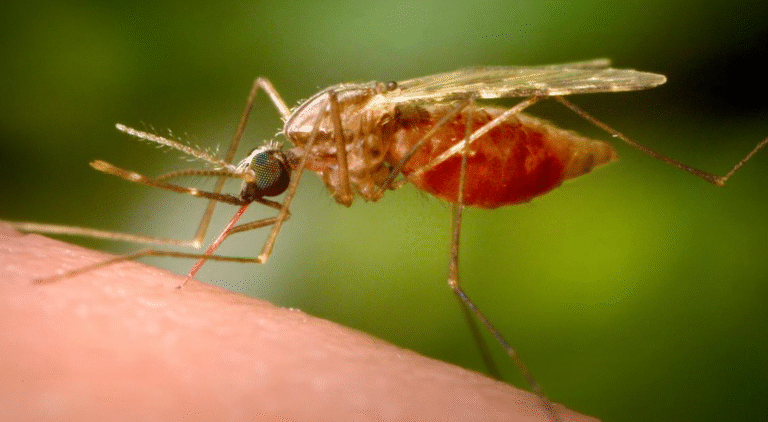Health officials confirm dengue fever Pasco Florida case
The Florida Department of Health has issued a public alert after confirming the first local case of dengue fever Pasco Florida. This case, found just north of Ridge Road in West Pasco, indicates that the virus is now being spread by local mosquitoes, marking a serious public health development for the region.
Experts believe the individual infected with dengue fever Pasco Florida did not contract the virus abroad but rather from a mosquito within the county. This type of local transmission underscores the potential danger of mosquito-borne illnesses becoming more prevalent in Florida communities.
How dengue fever Pasco Florida is transmitted
Transmission of dengue fever Pasco Florida begins when a mosquito, specifically the Aedes aegypti species, bites an infected individual and later bites someone else. These mosquitoes are well-adapted to Florida’s climate and thrive in urban environments with access to standing water.
Once the virus enters the mosquito population, the risk of spreading dengue fever Pasco Florida increases significantly. Since these mosquitoes are active during the daytime and can breed in small amounts of water, local transmission can happen quickly without early intervention.
Symptoms to look for in dengue fever Pasco Florida
Typical symptoms of dengue fever Pasco Florida include high fever, intense headaches, joint and muscle pain, pain behind the eyes, nausea, vomiting, and a red rash. The illness is sometimes called “breakbone fever” due to the severity of pain it can cause in bones and joints.
What makes dengue fever Pasco Florida particularly challenging to manage is that nearly 80% of cases are asymptomatic. These individuals may not even realize they are infected, but they still play a role in spreading the virus through continued exposure to mosquito bites.
No vaccine available for dengue fever Pasco Florida
Currently, there is no approved vaccine for dengue fever Pasco Florida available to the general public in the United States. This means that the best strategy for avoiding illness is prevention through personal protection and community-wide mosquito control.
Because dengue fever Pasco Florida cannot be cured with antibiotics or specific antiviral treatments, those infected are advised to rest, stay hydrated, and manage symptoms with over-the-counter pain relievers—excluding aspirin, which can increase bleeding risk.
Mosquito control efforts ramp up in Pasco County
In response to the confirmed case of dengue fever Pasco Florida, the Pasco County Mosquito Control District (PCMCD) has intensified its mosquito reduction measures. These efforts include the use of larvicide treatments to kill immature mosquitoes in standing water and aerial spraying to target adult mosquito populations.
Helicopters and spray trucks have been deployed in neighborhoods near the affected area to curb the spread of dengue fever Pasco Florida. These efforts are especially focused during the evening and early morning hours when mosquitoes are most active.
Community action plays a vital role in prevention
Residents are being asked to take immediate steps to help control dengue fever Pasco Florida by removing any containers around their homes that can hold standing water. Common culprits include flower pots, old tires, gutters, bird baths, and children’s toys left outdoors.
In addition to removing breeding sites, residents can protect themselves from dengue fever Pasco Florida by wearing long-sleeved clothing, using mosquito repellents containing DEET or picaridin, and installing screens on windows and doors to keep mosquitoes out.
Children and vulnerable groups at greater risk
Children, older adults, and individuals with compromised immune systems are at greater risk for severe cases of dengue fever Pasco Florida. In some cases, the virus can lead to dengue hemorrhagic fever, a more serious form that may require hospitalization and close medical supervision.
Families in Pasco County should be especially vigilant, as children are more likely to play outside during daylight hours when Aedes mosquitoes are active. Protecting children from dengue fever Pasco Florida starts with both environmental management and using mosquito repellent daily.
How climate and travel contribute to dengue fever Pasco Florida
Florida’s hot and humid climate makes it an ideal breeding ground for the Aedes mosquito, which is responsible for spreading dengue fever Pasco Florida. Warm weather and frequent rainfall create conditions that allow mosquitoes to thrive year-round.
Additionally, increased global travel contributes to the presence of dengue fever Pasco Florida. Travelers returning from dengue-endemic countries may unknowingly introduce the virus, setting off a chain of transmission if bitten by local mosquitoes.
Health agencies call for vigilance and early reporting
The Florida Department of Health urges all residents to report any symptoms of dengue fever Pasco Florida, even mild ones, to their healthcare provider. Early diagnosis is essential to prevent complications and reduce the risk of further spread.
Local health officials are closely monitoring the situation and maintaining communication with medical providers to identify any new cases of dengue fever Pasco Florida promptly. Increased surveillance helps protect the broader community.
Conclusion: Staying safe during dengue fever Pasco Florida outbreak
The appearance of dengue fever Pasco Florida signals the need for a coordinated community effort to stop mosquito breeding and protect vulnerable populations. While only one case has been confirmed so far, the potential for more cases exists if preventive action is not taken quickly.
By following health recommendations, eliminating standing water, and protecting yourself from mosquito bites, you can help reduce the spread of dengue fever Pasco Florida and ensure a safer environment for all Pasco County residents.


